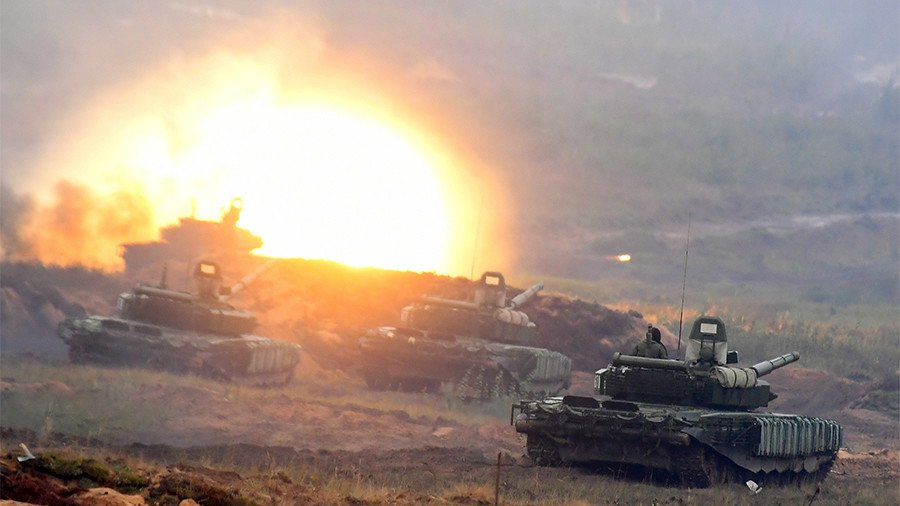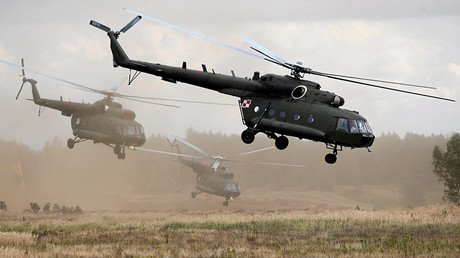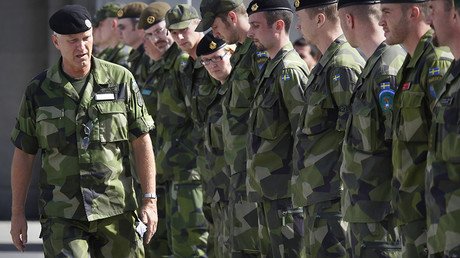Russia is stronger than Europe, US State Dept says in new 'Russian aggression' pitch

Russia’s military clout eclipses Europe’s, making it a “real” threat from “the Baltic to the Black Sea,” a senior US State Department official claimed, citing large-scale drills conducted by Russia within its own borders as proof of sinister intentions.
“The threat to [the West’s] collective security posed by Russia is clear, and we on both sides of the Atlantic cannot ignore it,” Brian Hook, the State Department’s director of policy planning and a senior adviser to US Secretary of State Rex Tillerson, said. He was addressing the Center for Strategic & International Studies' Transatlantic Forum on Thursday.
He went on to liken the level of the threat the West saw from the Soviet Union with the one it sees from modern Russia, claiming that “as in the past, the threat runs from the Baltic to the Black Sea.”
Unlike the USSR, modern Russia, according to Hook, “lacks an ideological coherence that informs its actions.”
And what's even worse, “Military arrangement of forces in Europe favors Russia,” Hook said.
To further prove Moscow's “military encroachment,” Hook pointed to the planned modernization of Russia’s armed forces and the regular military exercises it stages within its own borders alone or with its allies. He mentioned the Zapad 2017 wargames in September, which Russia and Belarus conducted in accordance with NATO rules, duly notifying the alliance of the exercises' defensive nature.
The Zapad drills were a trigger for a bout of hysteria in some NATO and allied countries, generating fears of an “invasion.”
In the wake of the exercises, NATO Secretary-General Jens Stoltenberg even had to cool down some hot heads, dismissing claims by the Ukrainian military that some Russian troops were left behind in Belarus as lacking any evidence.
NATO regularly stages drills on Russia’s doorstep, involving tens of thousands of troops, with US soldiers actively participating.
In response to the Zapad drills – which involved some 12,700 troops, 70 military aircraft, 10 ships and 680 land vehicles – Poland hosted “national exercises” that nevertheless saw contingents from the US, the UK, Germany, Lithuania, Latvia, Slovakia, Italy, Bulgaria, Romania, Georgia and Ukraine taking part.
The number of troops involved in the Polish Dragon 17 maneuvers far exceeded that of the Zapad contingent with some 17,000 servicemen and 3,500 units of hardware.
A parallel exercise, involving some 20,000 personnel, was held in Sweden, not far from the Russian exclave of Kaliningrad. While the massive drills were also announced as “national,” they involved troops from several NATO members.
Painting Russia as an aggressor, Hook further mentioned the Russian involvement in Georgia during the Five-Day War of 2008, although it was Georgian troops that launched attacks on civilians and Russian peacekeepers in South Ossetia, peppering the region’s capital, Tskhinval, with rockets.
Hook also reiterated the US administration stance on Crimea, calling its reunification with Russia in March 2015 as result of a popular referendum an “illegal annexation.”
Taking a more conciliatory tone, Hook admitted that despite all the disagreements, there is room for cooperation between Washington and Moscow, especially, in the resolution of conflicts in Ukraine, North Korea and Syria.
“In Syria, we established de-escalation zones fairly early in the administration, and those we agreed to are generally holding well. The ceasefire that we set up in southwest Syria has held since July, and we hope to cooperate on further ones,” Hook said.














